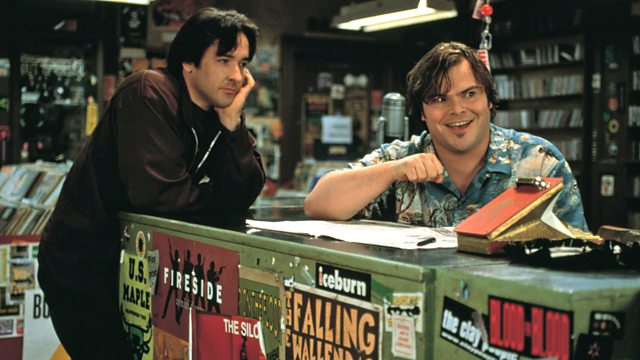People
Top 7 Reasons for Rejection in Sustainability & ESG Recruitment

I read this article on the BBC with interest – it’s something that regularly crops up both from a sustainability recruitment perspective and as a candidate.
One of my favourite books is High Fidelity by Nick Hornby – it’s also a great movie starring John Cusack and Jack Black. Two average Joe’s with a deep passion for music write lists, make mix-tapes and argue the merits of Stevie Wonder v Belle and Sebastian. A key part of the film is the main protagonist’s break-up which sends him on a quest to revisit the top 5 break-ups of his life and get some closure on what really happened. Needless to say that the truth, in most cases, hurt. He was far from the innocent party. In recruitment, like relationships, bad news is rarely handled well.
Within ESG / Sustainability recruitment our quest to give bad news humanely and empathetically, we often do the opposite; ‘other candidates were more suitably qualified for the role’ is well known recruitment speak for ‘it’s not you, it’s me’. That is to say we deflect the true reason for the decision onto factors the individual was unable to control; that mythical other candidate that had all of the points of the 5 page job specification nailed, lived next door to the office and was under the salary threshold.
Like relationships, however, sometimes the truth is a bit fluid. My mother-in-law once ended a long term relationship citing the ex’s ‘eyes were too close together’ (amongst other things); similarly a client turned someone down because he over indulged, likely through nerves at a ‘get to know you’ chat over a drink in a hotel bar. Needless to say, in both cases the reason given for rejection was not exactly explicit. That was extreme, clearly, but the reality is that in all but the rarest occasions, when an ESG interview process gets down to a decision between Candidate A and Candidate B, both can do the job. Both are at the right level, and bring enough experience and drive to meet the requirements of the brief.
So when it comes down to it, giving feedback can be really tricky, yet it is consistently one of the areas candidates within sustainability find the most frustrating. Naturally there is a bit of anxiety on behalf of hiring teams to avoid any awkward conversations, or worse, accusations of bias. Equally, it’s hard sometimes to articulate what amounts to personal preference, or gut feel into language that gives a candidate clear feedback that they can work on and also some sense of closure.
The reality is that giving feedback can rarely avoid provoking a sense of injustice. 15 years ago I was given feedback from a job I really wanted with a firm I respected that smarts, even to this day. When given a demo of a system I’d be using and a walkthrough of their talent mapping process, my questions and engagement was interpreted as over-confidence and dismissiveness. In reality, I suspect that my private school neutral accent and enthusiasm jarred with a South Manchester company and, much as I hate to admit it, they just didn’t really like me and didn’t want to work with me. So being given honest feedback can actually sting more than the generic and vanilla. They were probably right; I may not have fitted in, but I could definitely have done the job to a high standard.
In Sustainability recruitment, where possible I’d recommend having a call with either the recruiter of the hiring team if you can, though this is often avoided too. In the main, unless there is something genuinely fixable, I’d write-off a rejection as ‘wrong role, wrong fit’ rather than some conspiracy to keep you down. Instead, focus on what you can control. So in the spirit of High Fidelity’s ‘Top Five Break-ups’ here are my ‘Top 7 Reasons for Rejection’. By no means an exhaustive list, but common reasons for rejection in Sustainability recruitment include:
- Wrong career stage – the role is either too big a jump, or likely to be too small a challenge. Sometimes a role has limitations and firm tramlines – by demonstrating a wide range of ambition and experience, it can put off a recruiter, and is probably not the right fit
- Someone else is preferred – Hiring teams consider balance of skill and personality in addition to potential impact. If someone else is deemed to fit better, that’s all there is to it
- Unrealistic expectations of pay, reward or working pattern. In a lot of roles a budget is set at the start and is fairly fixed. It’s a myth that lots of negotiation is possible. It’s also ill-advised to over-inflate your expectations as a negotiation starting point. I’ve seen this backfire more often than I’d like to admit
- Too much emphasis on work/life balance. I’m not sure where I sit on this personally; I like transparency and honesty in the process, but it can quickly turn clients off when brought up too early. Post offer, maybe. Get the job first, then think about if it fits your lifestyle. Trying to bend a role to fit your lifestyle can end in tears
- Lack of engagement in the process. The early stages are a bit of a dance where both sides weigh up the opportunity v risk. At the end, if you give off any vibes of passivity or disinterest, you may well lose out. Do your research. Assuming the role comes with a 10% pay increase, is that worth a weekend of your time buried in a company report?
- Lack of key areas of experience – again, not a lot you can do about this, however it’s amazing how often candidates within sustainability contest this. This is often because they have failed to articulate their experience effectively, or the client has not asked insightful questions. Try to give examples and evidence to underpin your answers. If necessary, ask for clarification of questions
- Lacked polish. This is a tricky one – you are who you are to some extent. Particularly with Teams interviews, people are more accustomed to informality but it’s well within your control to sort this out. A candidate was rejected last summer because their uber was late. Frustrating though this is, it was late because the candidate did not anticipate that this may happen. This can, and does happen, so try to avoid leaving it to chance.
Overall, try to think of feedback as a nice to have rather than a chance of closure or redemption. Hiring teams get it wrong, but much of the process is within your control to fix. However within Sustainability Recruitment, wrong fit usually means it was the wrong job!



